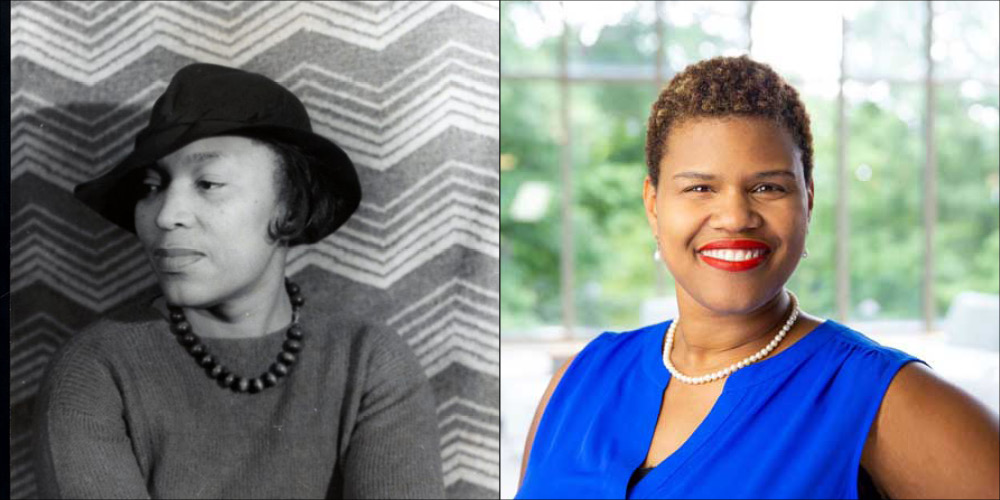Gibbs Presents on Black Folk Oral Traditions at Utah Storytelling Festival
June 3, 2022
BLOOMINGTON, Ill. — Michelle Gibbs, assistant professor of theatre arts at Illinois Wesleyan University, was among several storytellers and educators who presented at the Story Crossroads Annual Festival in Salt Lake County, Utah, last month.
The storytelling festival featured 15 professional, multicultural story artists and more than 40 community members telling on stage. Bilingual and cultural performers combined arts to bring the stories forward for the audience. Stories were told with ancient technique while incorporating new approaches to these traditions.
The title of Gibbs’ lecture was “Memorializing the Folk: Uncovering Black Folk Oral Traditions in Zora Neale Hurston’s ‘ Their Eyes Were Watching God .’”

“I offered some ways of reading and interpreting Hurston's groundbreaking novel about, among many things, gender and Black folk subcultures, that encouraged audiences to see themselves and how they tell stories as a form of relationship building," said Gibbs.
Gibbs said she crafted the presentation with a high school audience in mind, but the themes of her talk are universal.
“ It was an honor to introduce Hurston to a new generation of students who can see themselves in the story and learn to appreciate such a rich and inspiring literary masterpiece,” she said. “It's a presentation for anyone who wants to get to know Hurston, gender and Black folk subcultures, and/or the novel better."
A video of Gibbs’ presentation and other content from the festival is available to view at storycrossroads.org/festival for a fee through June 15.
As a nonprofit organization, Story Crossroads aims to gather and unify people across generations and cultures to celebrate stories and promote creative communities that thrive through strengthened communication, preservation and empathy.
By Julia Perez